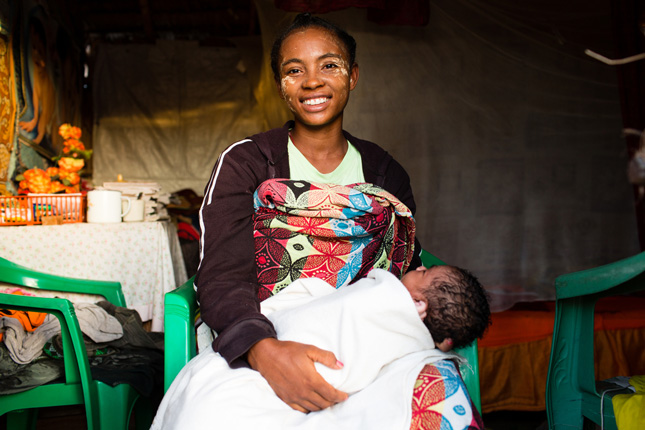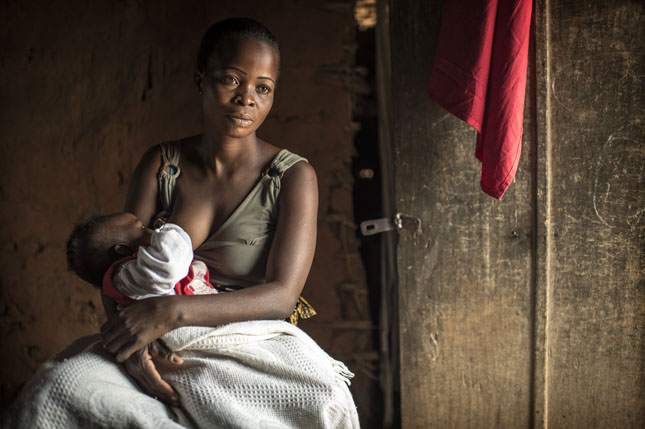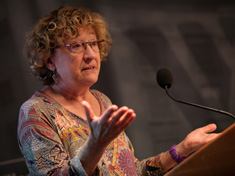-
Build It and They Will Come: New Approaches to Eliminating Fistula and Other Maternal Morbidities
›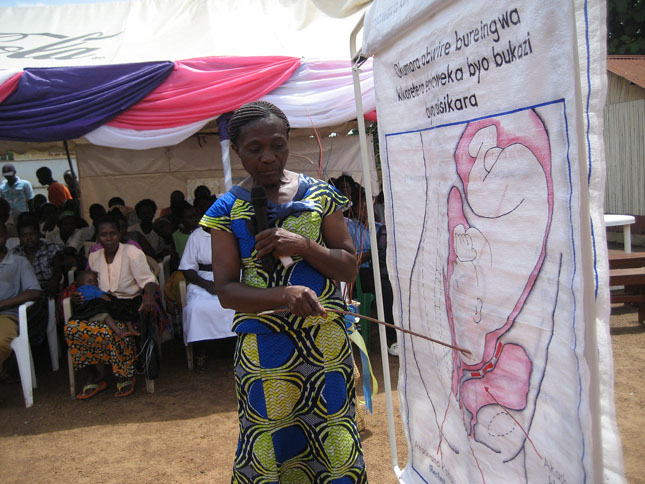
Obstetric fistula and pelvic organ prolapse are two common maternal morbidities that impact thousands of women in developing countries each year but are often overshadowed by maternal mortalities. Obstetric fistula, a hole in the birth canal caused by obstructed labor, affects between 50,000 and 100,000 women each year, mostly in developing countries. Pelvic organ prolapse, which occurs when a woman’s pelvic organs slip out of place, is 10 times more common, according to Dr. Lauri Romanzi, who spoke at the Wilson Center on July 14. [Video Below]
-
Lauri Romanzi on Rethinking Maternal Morbidity Care in a Historical Context
› In May 1855, Dr. James Marion Sims opened the first obstetric fistula hospital in New York City. Just 40 years later, it closed, reflecting a sharp decline in maternal morbidity rates in the United States and other Western countries. The Waldorf Astoria Hotel now stands on the site of the former hospital. “We know that we have eradicated obstetric fistula in high income countries; it happened at the turn of the 20th century,” says Dr. Lauri Romanzi, project director of Fistula Care Plus, in this week’s podcast.
In May 1855, Dr. James Marion Sims opened the first obstetric fistula hospital in New York City. Just 40 years later, it closed, reflecting a sharp decline in maternal morbidity rates in the United States and other Western countries. The Waldorf Astoria Hotel now stands on the site of the former hospital. “We know that we have eradicated obstetric fistula in high income countries; it happened at the turn of the 20th century,” says Dr. Lauri Romanzi, project director of Fistula Care Plus, in this week’s podcast. -
Keeping Up With Cuba: Mother-to-Child HIV Transmission in the Caribbean
›
Fear of mother-to-child transmission of HIV and other infectious diseases has been used as an excuse to deny women health care around the world. Some women living with HIV have even been sterilized without their knowledge. But with proper treatment, the chances of transmission to an unborn child are very low in many cases. The World Health Organization (WHO), in fact, just declared Cuba the first country to eliminate mother-to-child transmission of HIV and syphilis.
-
Parson Rambinizandry and Marie Williamson, Blue Ventures
Conservation Organization Helps Women Bring Health Care to Rural Madagascar
›
Two months ago we sat down with some of our community health workers to brainstorm ideas for International Women’s Day. What would engage women, what could bring about positive change in their community? Something different to the normal celebrations, perhaps a petition for a midwife? This seemed like a great idea on paper, but would it create false hope in a village where the public health center has been closed for years?
-
How Midwives Can Answer the World’s Maternal Health Woes
›
The world is about to hit a “turning point” in maternal and newborn health, said Laura Laski, chief of the sexual and reproductive health at UNFPA, at the Wilson Center on March 23. “In terms of strengthening the new health system for achieving the MDGS or any other goals, we have to focus on the human resources for health.” In particular, midwives.
-
Swept Under the Carpet: The Psychological Side of Maternal Health
›
In high-income countries, as many as 10 to 15 percent of women experience depression, anxiety, or other non-psychotic mental health challenges during pregnancy or the year after giving birth. In developing countries, the chances rise to 16 percent of pregnant women and 20 percent of post-natal women, according to Jane Fisher, professor of women’s health at Monash University in Melbourne, Australia. [Video Below]
-
Katie Millar, Maternal Health Task Force
Global Experts Highlight Importance of Midwives to Maternal Health
›
May 5 was the International Day of the Midwife, an opportunity for the global community to come together to recognize the incredible impact midwives have on maternal and newborn health and decreasing mortality. Want to know more about what global leaders are doing to strengthen midwifery?
-
Barbara Stilwell: Midwives Should be Empowered and Elevated, Not Subsumed by Process
›
One of the biggest challenges to improving health care in developing countries is that it’s not necessarily a great job. Midwives and other auxiliary health workers often face very difficult working conditions with little training, poor pay, and no hope of advancement. This can translate to poor results and even abuse of patients.
Showing posts from category Dot-Mom.


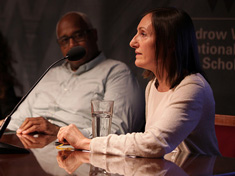 In
In 
